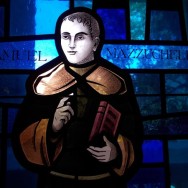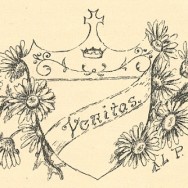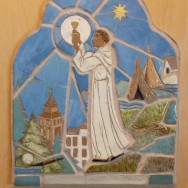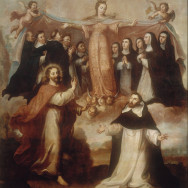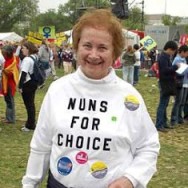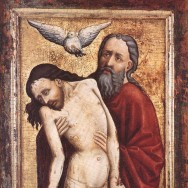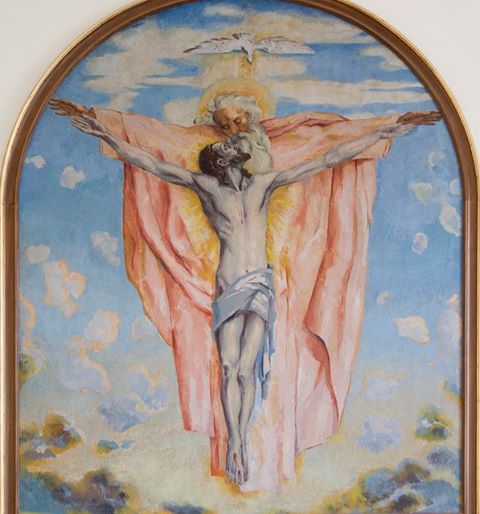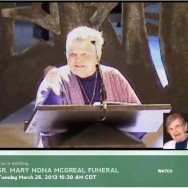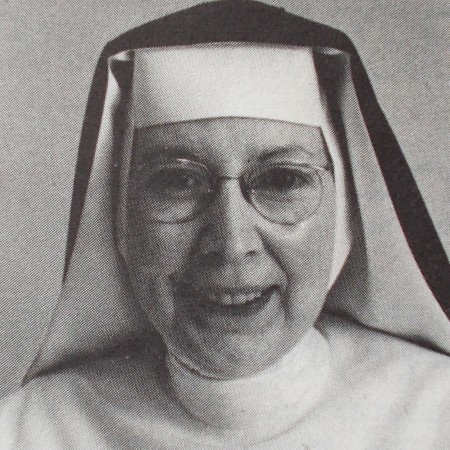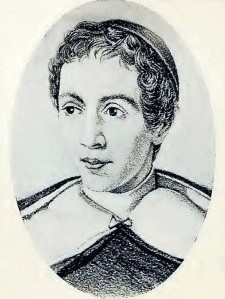A Report on the Sinsinawa Dominicans Today
Introduction to A Report on the Sinsinawa Dominicans Today
I first visited Sinsinawa Mound in the summer of 2012 on an edifying parish pilgrimage to sites associated with the great pioneer Dominican missionary priest Venerable Father Samuel Mazzuchelli. A builder of churches and founder of numerous parishes, Father Mazzuchelli also founded the community of Dominican Sisters of Sinsinawa. Since then I have also read his Memoirs and grown to have a tremendous appreciation and love for him and his still-very-current message, and would like to do the little I can do to inspire others to devotion to him. When I and a friend visited Sinsinawa Mound again in January of 2013 for a large showing of a film called Band of Sisters, about...
Read MoreTruth and Conscience
For some sisters, standing on conscience has come to often mean a liberation theology-influenced opposition to various teachings that the Catholic Church proclaims as certainly true. Often, listening to conscience is framed as being opposed to listening to Catholic teaching. Though Vatican II teaching on conscience is oft-cited as supporting their dissent, the teaching of Vatican II is that “In the formation of their consciences, the Christian faithful ought carefully to attend to the sacred and certain doctrine of the Church. For the Church is, by the will of Christ, the teacher of the truth.” This article surveys what the Catholic Church, Dominican Saints, and the Sinsinawa Dominicans say about truth, and about conscience. I point to and discuss some of the impact of “the new cosmology.” Also Included is a description of a video “A Matter of Conscience” made by Dominican sisters in response to the LCWR Doctrinal Assessment, which attempts to justify dissent by reference to Vatican II, the USCCB, Canon Law, etc.
Read MoreMoving beyond the Church?, Part 1: “What is Eucharist for me?”
The LCWR Doctrinal Assessment referred to Sinsinawa Dominican “Sr. Laurie Brink’s address about some Religious ‘moving beyond the Church’ or even beyond Jesus.” I begin discussing what Sister Laurie may have seen within her congregation that would make her say this, by discussing some sisters’ preference for alternative “feminist liturgies,” and discussions in which revised understandings of the meaning of the Eucharist are discussed and sometimes encouraged. At the extremes, these discussions range into the topic of starting “a new church.”
Read MoreMoving beyond the Church?, Part 2: “Relationship with the Institutional Church”
A sense of estrangement from what they term “the institutional church” is extremely prevalent among Dominican Sisters of Sinsinawa, and has been discussed at length even at the congregation level, and this article describes some detailed history of that in the last several years. Their thinking and attitude about it simply does not cohere with Vatican II, which says that the society of the Church structured with hierarchical organs is not to be considered a separate reality from the visible assembly and spiritual community of the Church. Some Sinsinawa Dominicans have even asked “Is it better to work within or step outside and have our own church?” But, in the words of Pope Francis, quoting Pope Paul VI, “It’s an absurd dichotomy to think one can live with Jesus, but without the church, to follow Jesus outside the church, to love Jesus and not the church.”
Read MoreThe scandal of Sister Donna Quinn
Sister Donna Quinn entered religious life in 1955, and in 1974 her life took a decisive turn toward radical feminist activism. Sister Donna has repeatedly faced by Catholic authorities with dismissal from religious life for her advocacy of abortion rights, signing on to a “pro choice” New York Times ad in 1984, and causing scandal by volunteering as an abortion clinic escort in 2009, but the Sinsinawa Dominican congregation to which she belongs has repeatedly made statements on her behalf and covered for her, which the Church accepted even though Sister Donna has publicly spoken up rejecting the statements. At a Planned Parenthood event in California in May of 2012, Sister Donna Quinn said of her abortion clinic escorting “so what if they were coming in for an abortion? So what?” Sister Donna is a national leader of the dissident sisters’ groups NCAN and Women-Church Convergence and Illinois state coordinator of the Religious Coalition for Reproductive Choice. Sister Donna denounces all religions including Catholic Christianity as misogynistic, has been known to protest against and refuse to attend Holy Mass on the basis that there is a male priest, and says she remains in religious life “for the sisterhood.”
Read MoreOn whether to give honor to Almighty God, Father, Son and Holy Spirit–Part 1: Dominican Praise
Glory be to the Father, and to the Son, and to the Holy Spirit, as it was in the beginning, is now, and will be forever. Amen. Alleluia. This doxology begins each hour of the Liturgy of the Hours–words deeply familiar for most religious sisters and all priests. The most astounding and disturbing things I read on the Sinsinawa Dominicans’ email discussion list archive SinsinOP were the discussions about what language to use for the Divine Persons of the Trinity, instead of “Father, Son, and Holy Spirit.” Some speak of wanting a greater variety of words for God and flexibility; others are very radical and want to do away with all male language for...
Read MoreOn whether to give honor to Almighty God, Father, Son and Holy Spirit–Part 2: Vow Formula
Is God literally or metaphorically Father? Not only did the preference for de-gendered language for God contribute to leading the sisters away from praying the official prayer of the Church, the Divine Office, but many actually wanted to change most everything to remove male language, including their Constitutions and their vow formula. In February of 2002, Sister Patty Caraher began a discussion on the Sinsinsawa Dominicans’ SinsinOP email discussion list: Dears, Thanks to [Dominican Praise translation committee member] Mary Margaret [Pazdan] for her carefully presented paper on “alternative language” which prompted a wonderfully lively discussion at...
Read MoreThe preaching of the non-ordained: why not sister homilists
Why is the homily reserved to the priest or deacon alone? There is a deeper reason than the fact that the Church has assured their proper formation, education and training and commissioned them for that service. That reason lies in the unity of the Liturgy of the Word and the Liturgy of the Eucharist, and the intense orientation of the Gospel and the exposition of the Scriptures, toward the Eucharist, source and summit of the Christian life. The homily is ordinarily given by the priest celebrant of the Mass, or occasionally for a good reason, a concelebrant priest or one assisting “in choir”, or the deacon, but having some other person slip in to give the...
Read MoreSister Francis Assisi Loughery, who spoke up for Catholic beliefs
Ann Therese Loughery was born July 26, 1922 in Cicero, IL, to Cornelius Francis and Mary (Ryan) Loughery. She had two brothers, Gerald and Francis, and a sister, Dorothy. She received Catholic schooling at Mary, Queen of Heaven Grade School in Cicero and Saint Patrick High School in Chicago, then a bachelor’s degree from Chicago’s DePaul University, in philsophy and English, after which she taught for a little while at St Patrick High School. She discerned a call to the Dominican Sisters of the Congregation of the Most Holy Rosary of Sinsinawa in her late 20s, entering the novitiate a year after a friend from DePaul, Mary Courtney, who became in religion...
Read More


